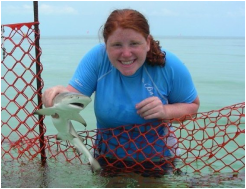
Hi everyone!
Welcome to my website and, in particular, my research blog! I am going to try to post once a month throughout my PhD but I make no promises or guarantees that it won’t be more or less often. For my first two blog posts I am going to share how I got to be a PhD candidate at JCU. Here is part one:
From the time I was about 5, I have loved sharks. I can remember having competitions to see who could name more sharks with my friend Max instead of listening to class (I always won but he’s a doctor now so we’re both doing ok). In addition to loving sharks, I have also always had an aptitude for research. I was a constant questioner but was never satisfied with an “I don’t know” answer. If the answer didn’t exist, I wanted to be the one to find it. When I was in high school and it was getting time to decide on universities, I knew exactly where I wanted to be. James Cook University (JCU) in Australia, world renowned for their marine biology program was my number one spot. Unfortunately, my mother was not as excited about Australia as I was, seeing as it’s almost exactly on the other side of the world from Toronto. If I wanted to be at JCU, I would have to fund my own way. For those of you that don’t know, Australia is expensive so that wasn’t a viable option. I then set my sights on somewhere closer, and still well known for marine and (mainly) freshwater biology and their research, University of Guelph. Guelph is only a short hour outside of Toronto, which was something both my parents were happy about.
Before even beginning my degree, I had already participated in 2 research projects, including one of my own! The first was when I had just turned 16. I participated on an Earthwatch trip to Prince William Sound, Alaska to help with research on sea otters. The researchers were from Texas A&M and the 2 projects looked at females with pups and territorial males. It was an amazing experience to say the least. Alaska was high on my list of places to go and this was my first trip (of many) where I got to travel by myself. The next summer, the one before university, I attended a field course in Pacific Harbour, Fiji. It was my first real chance to dive with sharks, and they were big ones! In Beqa Lagoon, home to big bull sharks, tiger sharks, reef sharks, and the occasional nurse shark, my love of sharks was solidified. To say I was the nerd on that course would be an understatement, but I was too happy to care!
As soon as I got to Guelph, my first stop (before orientation) was the on-campus Aqualab to see if any volunteers were needed. I began working on unionid mussels in my first semester as a volunteer and was being paid by second year. I was trusted to train new volunteers (including those in years ahead of me), run experiments, and euthanize and dissect all experimental animals. Even though it wasn’t an area I wanted to stay in, working with mussels was my first research job so they will always have a special place in my heart.
Throughout my undergrad, I tried to find all opportunities to spend time helping out with research, or doing my own. Summer after my second year I spent 2 months as a volunteer at the Bimini Biological Field Station (BBFS) in the Bahamas. Within a week I had tagged my first shark! He was a beautiful blacktip reef shark, 121 cm long. While at BBFS, I got to help track, longline, tag, and snorkel with lots of sharks. I learned a lot at BBFS, but found that I was most interested in Bull Sharks because they could move freely through fresh and saltwater and this physiology was very cool to me.
Before my final year of my undergrad, I spent a couple months in South Africa working with Great White Sharks! My mother had always wanted to go to Africa with me, since my dad and brothers aren’t exactly the outdoors adventure types, and was planning a trip for us as a graduation present. Before she could do that though, I had found an internship in South Africa and had saved up money to get myself there. I told my parents my plans and my mother was immediately upset she didn’t get me to Africa first. We ended up going on her planned grad trip a year before I graduated and had an amazing time in Kenya, Botswana, Zambia, and South Africa before I started the internship. I even got her in a cage with great whites in Gansbaii! I also got to use the money I was going to spend on flights on an amazing camera that I still treasure! As anyone who likes sharks would, I wanted to see a Great White live. I didn’t want to work with them in my future so I figured an internship is a great way to have some experience and get up close to them! It wasn’t a let down. Every single time I was on the chumming boat, I saw at least one shark, sometimes even up to 14 in one trip! I was also there during breaching season so I got to see some incredible breaches, which you can find on my YouTube channel. I left South Africa with a new appreciation for research and it was perfect timing for me to start my thesis.
For my honours thesis, I looked at the ontogeny of methylamines in Brownbanded bamboosharks. I spent a lot of time in my lab and realized physiology was very interesting in theory, but too much chemistry for me. I also had to sacrifice 10 juveniles and 30 eggs for my work, which I did not think was a valid enough reason to do that. If I am going to sacrifice animals to do research, there needs to be a conservation purpose for that action. In the Brownbanded bambooshark, their populations are stable and high, and the physiological information I got will not help keep their populations healthy.
From my undergrad, I began applying for PhD projects globally. I wanted to be at JCU, but received an offer from a different Australian university and began discussing a project with an advisor there. I was so excited to get started and had already packed my bags, was just waiting for the official confirmation to book my flights. That was when the worst thing happened, it fell through. I was devastated. I could see my dreams crumbling before my eyes and of course, as a dramatic young adult, thought all my options were gone and I should just give up hope. After a week of feeling sorry for myself, I knew I needed to do something else, and fast! I had been working as a divemaster at my university for 5 years and being underwater was (and still is) the one thing that can completely relax me no matter what else is going on in my life. I found a PADI Instructor internship program in Malaysia and signed up. Moving over to Malaysia was the greatest thing I could have done. I got to meet wonderful new people, who I am still friends with to this day, I was diving everyday, and I got to travel more. After the heartbreak I felt from being so close to getting what I had always wanted, Malaysia was the best consolation prize.
As this post became a lot longer than I initially expected, I am going to split it into two. We will pick up next in Malaysia when I realize I can still have my cake and eat it too! Thanks for reading, feel free to leave me some comments and tell me what you like / didn’t like so I can make posts in the future better!
Thanks,
Samm
Welcome to my website and, in particular, my research blog! I am going to try to post once a month throughout my PhD but I make no promises or guarantees that it won’t be more or less often. For my first two blog posts I am going to share how I got to be a PhD candidate at JCU. Here is part one:
From the time I was about 5, I have loved sharks. I can remember having competitions to see who could name more sharks with my friend Max instead of listening to class (I always won but he’s a doctor now so we’re both doing ok). In addition to loving sharks, I have also always had an aptitude for research. I was a constant questioner but was never satisfied with an “I don’t know” answer. If the answer didn’t exist, I wanted to be the one to find it. When I was in high school and it was getting time to decide on universities, I knew exactly where I wanted to be. James Cook University (JCU) in Australia, world renowned for their marine biology program was my number one spot. Unfortunately, my mother was not as excited about Australia as I was, seeing as it’s almost exactly on the other side of the world from Toronto. If I wanted to be at JCU, I would have to fund my own way. For those of you that don’t know, Australia is expensive so that wasn’t a viable option. I then set my sights on somewhere closer, and still well known for marine and (mainly) freshwater biology and their research, University of Guelph. Guelph is only a short hour outside of Toronto, which was something both my parents were happy about.
Before even beginning my degree, I had already participated in 2 research projects, including one of my own! The first was when I had just turned 16. I participated on an Earthwatch trip to Prince William Sound, Alaska to help with research on sea otters. The researchers were from Texas A&M and the 2 projects looked at females with pups and territorial males. It was an amazing experience to say the least. Alaska was high on my list of places to go and this was my first trip (of many) where I got to travel by myself. The next summer, the one before university, I attended a field course in Pacific Harbour, Fiji. It was my first real chance to dive with sharks, and they were big ones! In Beqa Lagoon, home to big bull sharks, tiger sharks, reef sharks, and the occasional nurse shark, my love of sharks was solidified. To say I was the nerd on that course would be an understatement, but I was too happy to care!
As soon as I got to Guelph, my first stop (before orientation) was the on-campus Aqualab to see if any volunteers were needed. I began working on unionid mussels in my first semester as a volunteer and was being paid by second year. I was trusted to train new volunteers (including those in years ahead of me), run experiments, and euthanize and dissect all experimental animals. Even though it wasn’t an area I wanted to stay in, working with mussels was my first research job so they will always have a special place in my heart.
Throughout my undergrad, I tried to find all opportunities to spend time helping out with research, or doing my own. Summer after my second year I spent 2 months as a volunteer at the Bimini Biological Field Station (BBFS) in the Bahamas. Within a week I had tagged my first shark! He was a beautiful blacktip reef shark, 121 cm long. While at BBFS, I got to help track, longline, tag, and snorkel with lots of sharks. I learned a lot at BBFS, but found that I was most interested in Bull Sharks because they could move freely through fresh and saltwater and this physiology was very cool to me.
Before my final year of my undergrad, I spent a couple months in South Africa working with Great White Sharks! My mother had always wanted to go to Africa with me, since my dad and brothers aren’t exactly the outdoors adventure types, and was planning a trip for us as a graduation present. Before she could do that though, I had found an internship in South Africa and had saved up money to get myself there. I told my parents my plans and my mother was immediately upset she didn’t get me to Africa first. We ended up going on her planned grad trip a year before I graduated and had an amazing time in Kenya, Botswana, Zambia, and South Africa before I started the internship. I even got her in a cage with great whites in Gansbaii! I also got to use the money I was going to spend on flights on an amazing camera that I still treasure! As anyone who likes sharks would, I wanted to see a Great White live. I didn’t want to work with them in my future so I figured an internship is a great way to have some experience and get up close to them! It wasn’t a let down. Every single time I was on the chumming boat, I saw at least one shark, sometimes even up to 14 in one trip! I was also there during breaching season so I got to see some incredible breaches, which you can find on my YouTube channel. I left South Africa with a new appreciation for research and it was perfect timing for me to start my thesis.
For my honours thesis, I looked at the ontogeny of methylamines in Brownbanded bamboosharks. I spent a lot of time in my lab and realized physiology was very interesting in theory, but too much chemistry for me. I also had to sacrifice 10 juveniles and 30 eggs for my work, which I did not think was a valid enough reason to do that. If I am going to sacrifice animals to do research, there needs to be a conservation purpose for that action. In the Brownbanded bambooshark, their populations are stable and high, and the physiological information I got will not help keep their populations healthy.
From my undergrad, I began applying for PhD projects globally. I wanted to be at JCU, but received an offer from a different Australian university and began discussing a project with an advisor there. I was so excited to get started and had already packed my bags, was just waiting for the official confirmation to book my flights. That was when the worst thing happened, it fell through. I was devastated. I could see my dreams crumbling before my eyes and of course, as a dramatic young adult, thought all my options were gone and I should just give up hope. After a week of feeling sorry for myself, I knew I needed to do something else, and fast! I had been working as a divemaster at my university for 5 years and being underwater was (and still is) the one thing that can completely relax me no matter what else is going on in my life. I found a PADI Instructor internship program in Malaysia and signed up. Moving over to Malaysia was the greatest thing I could have done. I got to meet wonderful new people, who I am still friends with to this day, I was diving everyday, and I got to travel more. After the heartbreak I felt from being so close to getting what I had always wanted, Malaysia was the best consolation prize.
As this post became a lot longer than I initially expected, I am going to split it into two. We will pick up next in Malaysia when I realize I can still have my cake and eat it too! Thanks for reading, feel free to leave me some comments and tell me what you like / didn’t like so I can make posts in the future better!
Thanks,
Samm
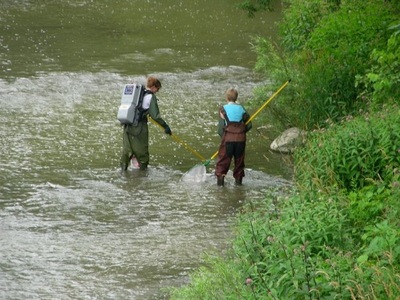
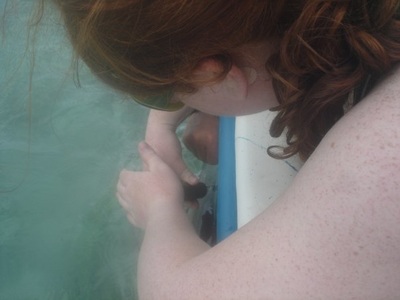
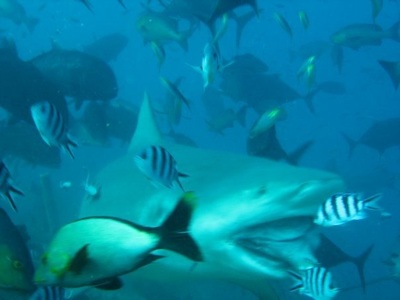
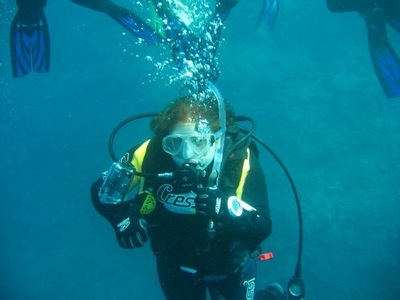
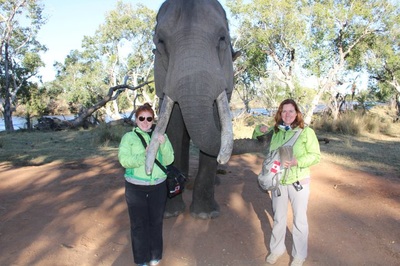
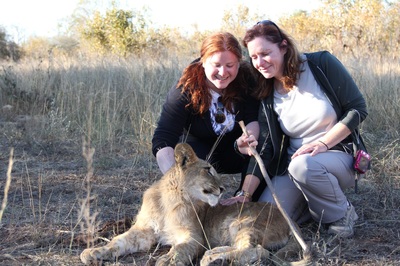
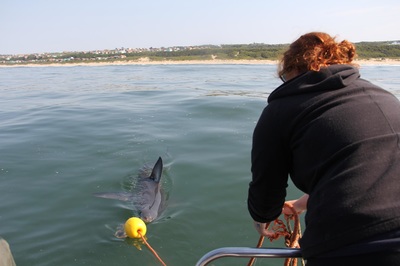
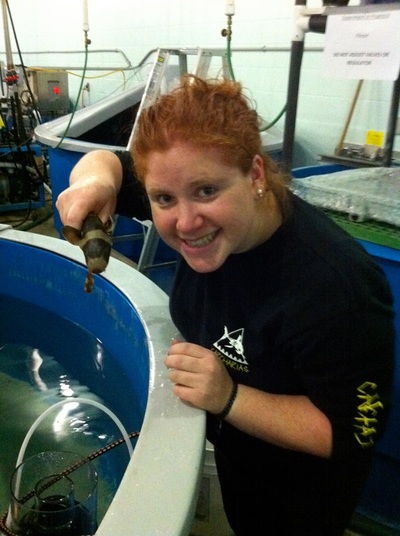
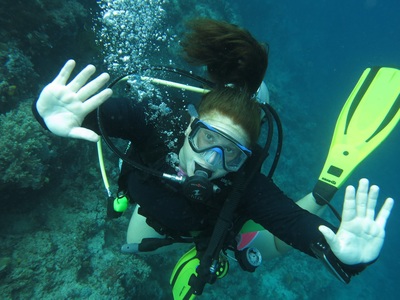
 RSS Feed
RSS Feed